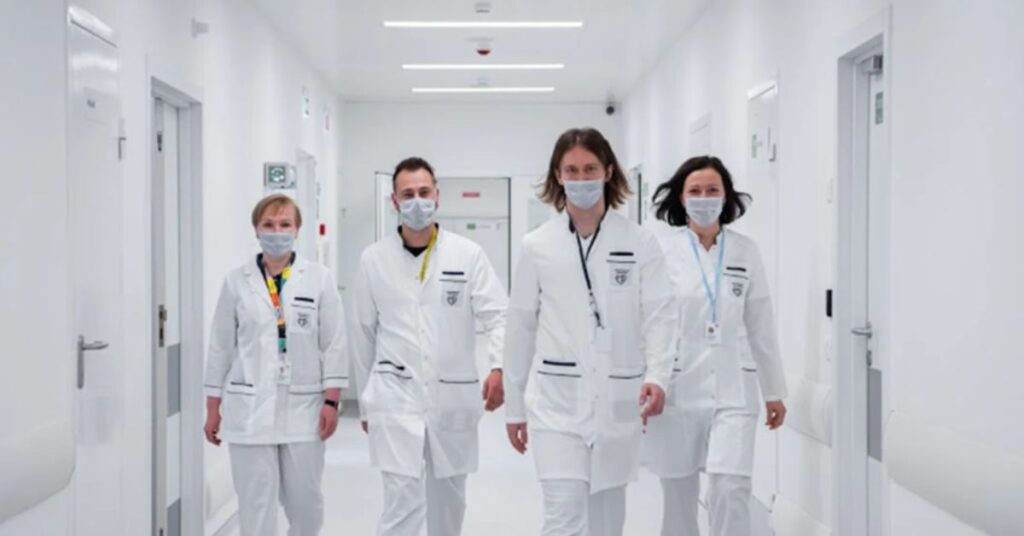Healthcare is one of the most dynamic and complex industries in the world. Yet, studies reveal a growing concern: many healthcare organizations struggle with inefficient systems, burnout among staff, and a lack of strategic foresight. These challenges demand more than day-to-day management. They require leaders who can think strategically, adapt to changing environments, and anticipate future needs.
Strategic thinkers in leadership roles are not just planners; they are visionaries. Without such leadership, healthcare organizations risk stagnation, inefficiency, and suboptimal patient outcomes. This article explores why healthcare needs more strategic thinkers and how they can reshape the future of the industry.
Understanding Strategic Thinking in Healthcare Leadership
Strategic thinking is the ability to assess complex situations, identify opportunities, and create actionable plans that benefit an organization in the long run. In healthcare, this means more than just managing resources. It involves anticipating patient needs, responding to emerging trends, and navigating regulatory changes effectively.
Healthcare leaders with strategic thinking skills look beyond immediate operational concerns. They consider the bigger picture, such as the integration of new technologies or the long-term implications of workforce changes. For example, a strategic leader might prioritize investment in telemedicine during its early stages, recognizing its potential to improve access to care. This proactive mindset is what sets strategic thinkers apart and ensures their organizations remain competitive and relevant.
Strengthening Decision-Making in Times of Crisis
Crisis situations in healthcare are inevitable. Whether it’s a pandemic, a natural disaster, or an unexpected operational breakdown, leaders must act decisively. Strategic thinkers excel in these high-pressure situations because they are prepared for the unexpected. They anticipate potential risks and develop contingency plans that enable quick, informed decisions.
This is where hiring professionals with the right educational background becomes crucial. For instance, a healthcare management MBA degree equips aspiring leaders with critical skills, such as risk assessment, strategic planning, and effective communication, which are essential during emergencies. Programs often include courses in crisis management and healthcare operations, providing practical frameworks for handling high-pressure situations.
For instance, students learn to analyze data to make informed decisions quickly, prioritize resources effectively, and coordinate with teams across departments. These skills, developed during an MBA program, prepare leaders to respond with confidence, ensuring better outcomes during unexpected challenges like pandemics or natural disasters.
Aligning Administration Goals with Patient-Centric Care
One of the most significant challenges in healthcare leadership is bridging the gap between administrative priorities and the delivery of patient care. Often, operational goals such as cost reduction or efficiency improvements are seen as being at odds with providing high-quality care. However, strategic thinkers understand that these goals can and must coexist.
By fostering collaboration between departments, strategic leaders create solutions that benefit both patients and the organization. For instance, they might implement streamlined workflows that reduce administrative burdens on clinical staff, allowing them to focus more on patient care. These leaders also prioritize transparency, ensuring that patients are informed and engaged in their healthcare journey. Aligning these priorities not only improves patient outcomes but also enhances organizational efficiency.
Effectively Managing Resources
Healthcare organizations operate under significant constraints, from budget limitations to staffing shortages. Strategic thinkers excel at managing these resources efficiently, ensuring that they are allocated where they are needed most.
For example, a strategic leader might use data analytics to predict patient admission trends and adjust staffing levels accordingly. This ensures that staff are neither overwhelmed nor underutilized, improving morale and patient care. These leaders also advocate for resource-sharing initiatives, such as partnerships with other healthcare facilities, to address gaps in care. Effective resource management allows organizations to maintain high standards of care, even during challenging times.
Workforce Retention and Morale as Leadership Priorities
The healthcare workforce is the backbone of the industry, yet it faces high levels of stress and burnout. Strategic leaders recognize that addressing these challenges is essential for organizational success. They implement programs that support staff well-being, such as flexible scheduling, mental health resources, and professional development opportunities.
By fostering a supportive work environment, strategic thinkers help reduce turnover rates and attract top talent. They also promote open communication, ensuring that employees feel heard and valued. This focus on workforce retention and morale not only benefits staff but also leads to better patient care, as engaged and motivated employees are more likely to perform at their best.
Shaping Policies That Drive Long-Term Success
Healthcare organizations operate within a framework of policies that impact every aspect of their operations. Leaders with strategic thinking skills play a vital role in shaping these policies to ensure sustainability and success. They analyze data, consider stakeholder feedback, and evaluate long-term implications before making decisions.
Strategic leaders understand the importance of aligning organizational policies with broader healthcare goals, such as improving patient access or reducing health disparities. For instance, they may advocate for policies that incentivize preventive care, which reduces the burden on emergency departments and improves overall population health. These policies don’t just address immediate challenges but set the foundation for a thriving organization.
The healthcare industry is at a crossroads. With increasing challenges such as workforce shortages, rising costs, and growing patient needs, traditional leadership approaches are no longer sufficient. Strategic thinkers bring a unique skill set that enables organizations to navigate these complexities and thrive in an ever-changing landscape.
These leaders are not just problem-solvers; they are visionaries who plan for the future while addressing present needs. They prioritize innovation, foster collaboration, and build resilient systems that benefit both patients and staff. As the healthcare industry continues to evolve, the need for strategic thinkers in leadership roles has never been greater. Organizations that invest in cultivating and recruiting such leaders will be well-positioned to succeed in the years ahead.







